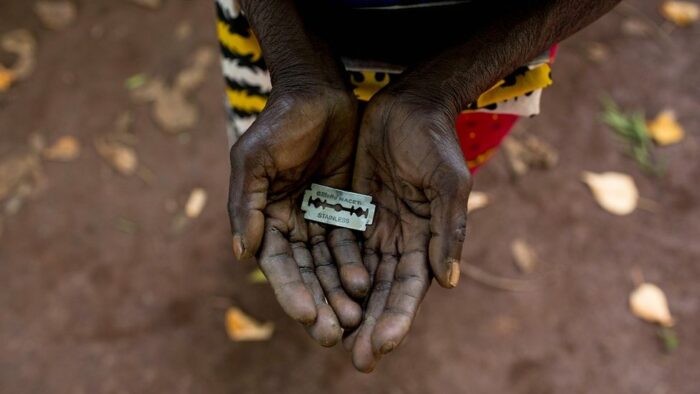Women across generations have spoken on the reasons behind female genital mutilation (FGM), from preventing girls from being bitten by an infection-causing insect, to ignorance.
On the occasion of International Youth Day 2022, Onelife Initiative, a youth-focused organisation engaged different generations of women to express their views on the practice. According to Sola Fagorusi, the Executive Director of Onelife, some of the women claimed that mutilation was used to prevent bites by Eeta, a tiny insect associated with hygiene.
Women interviewed by Onelife also said the practice of mutilating vaginas was common in ancient times for various reasons, including prevention of promiscuity.
“Our Sexual and Reproductive Health and Rights Desk initiated the idea of speaking to women from different generations. Together with the media department, we spoke to women from the silent generation (those born in the mid-1920s through the mid-1940s) to Generation Z,” said Fagorusi.
READ MORE: Comprehensive Sexuality Education Coming to 1,700 Girls Courtesy of Onelife, IPAS
“The findings and perspectives were different. A great grandmother explained to us that she and others her age met their elders cutting the girl child.”
Another woman from the baby boomer generation explained to Onelife that she circumcised some of her female children because it was the family culture and tradition.
“As a young wife, I dare not say no to the elders,” she was quoted as saying. “The family of my other husband from Ogun State did not have that culture, so my daughters from there were not circumcised.”
READ MORE: Onelife Initiative Partners Hospital to Offer Free Care for FGM survivors
In another case, a female Gen Z told the organisation: “People circumcised their female children in the olden days. I don’t know what it entails, the advantages or consequences.
“I have never seen any girl who was circumcised. I just heard they practised it then. I won’t circumcise my girl child because I was told it is not good to circumcise a girl child.”
Onelife said it was working with youth volunteers in Imo, Kwara, Kaduna, Ekiti and Ebonyi — the five most FGM-endemic states in Nigeria — via an initiative supported by YouthHub Africa and the Africa Youth Commission through the UNICEF-UNFPA Joint Programme on the Elimination of Female Genital Mutilation.
“In these states, we are educating young people on how to provide end-FGM information,” Fagorusi said.
“We are engaging with transporters, and given the ubiquitous nature of their job, we are using various behaviour change communication materials, both online and offline.
“Youths need to understand that they can rely on the support of other generations, even as far as the silent generation, the baby boomers, the Generation X, millennials and even intra-generational within the Gen Z, as they are called.”
Female genital mutilation is the partial removal of all or part of the external female genitalia for cultural or non-medical reasons. Nigeria has an FGM prevalence of 24.8 percent, with about 20 million girls and women having been cut. Despite being banned, the practice continues to thrive behind closed doors.
Subscribe
Be the first to receive special investigative reports and features in your inbox.















